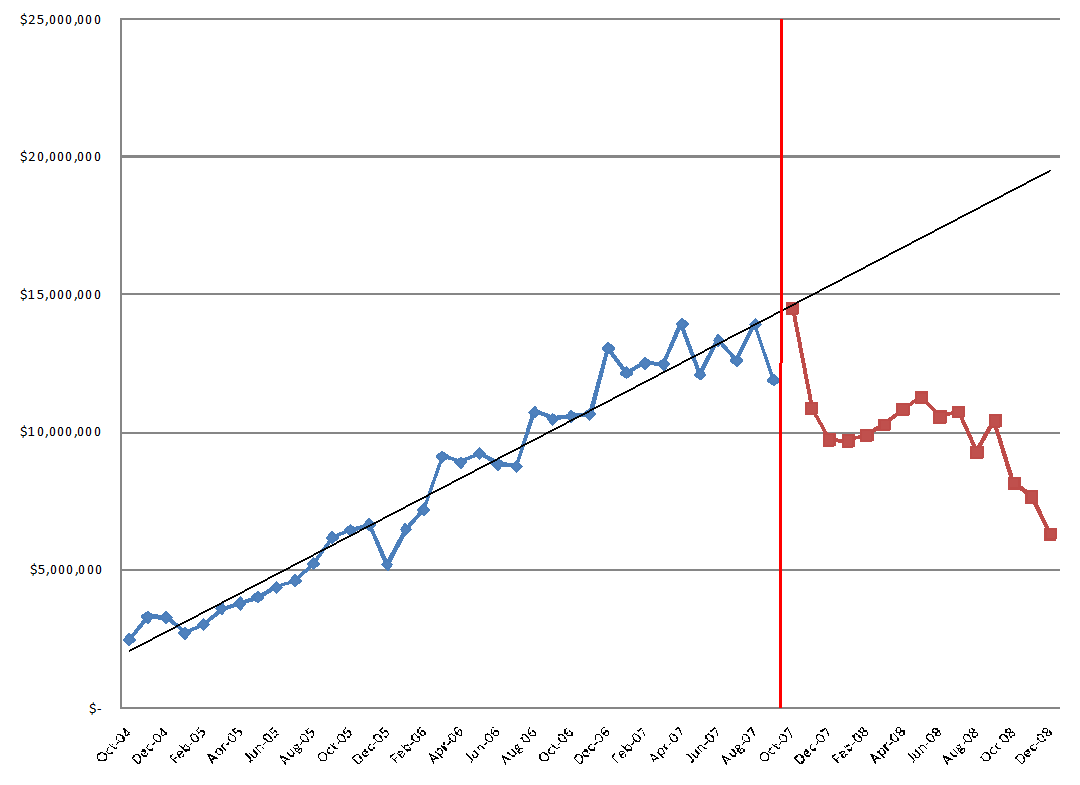The Financial Expert
Often the Link Between Damages and Causation
Even with established liability, a plaintiff seeking damages must be able to calculate damages with reasonable certainty and demonstrate a causal link between the defendant’s acts and the plaintiff’s injury. The concept of causation is simple—did a defendant’s wrongful act cause the plaintiff’s damages? Proving causation, however, is not always as simple. Many times, damage experts simply assume causation. However, courts sometimes reject a finding on causation, and therefore the resulting damages, when an expert fails to consider alternative factors that could have caused or contributed to the plaintiff’s damages. Accordingly, a damage expert needs to understand and be prepared to explain five primary points related to causation. The authors present two hypotheticals to further explain the importance of showing causation and linking the same to damages.
[su_pullquote align=”right”]Resources:
Intro to Personal Injury and Wrongful Death: Economic Theory, Law, and Finance
Fundamentals in Calculating Damages in Personal Injury Cases
Key Elements in Calculating Losses in Personal Injury and Wrongful Death Litigation
Calculating Damages in Personal Injury I
Calculating Damages in Personal Injury II
[/su_pullquote]
Let’s say a drunk driver ran a stop sign at three in the morning. Only one other car was in the intersection, and it ended up with significant damage. The drunk driver broke the law and was clearly liable for running the stop sign. He must have caused the damage to the other car, right? But what if a deer had run across the intersection at the same time and it was hitting the deer that caused the other driver’s damage? Is the drunk driver liable for the damage?
While this is an overly simplified example, it demonstrates the importance of causation. Even with established liability, a plaintiff seeking damages must be able to calculate damages with reasonable certainty and demonstrate a causal link between the defendant’s acts and the plaintiff’s injury. The concept of causation is simple—did a defendant’s wrongful act cause the plaintiff’s damages? Proving causation, however, is not always as simple. Many times, damage experts simply assume causation. However, courts sometimes reject a finding on causation, and therefore the resulting damages, when an expert fails to consider alternative factors that could have caused or contributed to the plaintiff’s damages. Accordingly, a damage expert needs to understand and be prepared to explain five primary points related to causation:
- The defendant’s wrongful conduct;
- How the alleged wrongful conduct did or did not cause damages;
- The logic that connects the defendant’s alleged wrongful conduct to the plaintiff’s damages;
- Other factors that could have caused or contributed to the plaintiff’s damages; and
- Whether the damages would reasonably be expected to result from the alleged wrongful conduct (i.e., foreseeability).[1]
As causation and damages are linked, qualified damages experts may be able to provide the trier of fact with analyses that assist in deciding whether the causal link has been proven by the plaintiff.
The following are examples of how a financial expert can assist in analyzing causation, both from an affirmative and rebuttal point of view:
False and Defamatory Statements
An individual, who was subject to contractual confidentiality and non-disparagement provisions which he allegedly breached, made a series of false and defamatory statements regarding the safety of a health food product. The statements were spread rapidly on the internet, 60 Minutes, newspapers, and reported on the evening news. The defendant’s claims were intense, relentless, and ultimately shown to be false. To help in establishing causation in connection with the plaintiff’s damages, we analyzed the sales of the product both before and after the start of the false statements as well as the frequency of false statements. As shown in the chart below, the sales of the health food product were growing at a strong and consistent rate over several years prior to the start of the false and defamatory statements. Once the false statements started and continued, the sales of the health product dropped significantly.
Pre-Incident and Post-Incident Monthly Sales

Alleged Trademark InfringementThe decline in sales clearly coincided with the advent of the false statements. However, to properly demonstrate that the decline was caused by the defendant’s actions, we needed to rule out any other factors that could have been the cause of the loss in sales. This was accomplished through several analyses, including an analysis of the industry and the performance of specific competitors during the same time period (which included the onset of the Great Recession). The analysis shows that the overall competitive set was growing by six percent during the twelve-month period following the start of the alleged actions, while the plaintiff suffered a decline in sales of more than 14% (with a continued decline after that twelve-month period). The analysis shows a clear link between the false and defamatory statements and the damages, and that no other industry or economic factors accounted for the material reduction in sales and resulting lost profits.
A downtown Las Vegas casino (Plaintiff Casino) brought a trademark infringement action against a Las Vegas Strip property alleging damages because of market confusion and deceptive advertising relating to a trademarked name. The plaintiff’s expert did demonstrate that the Plaintiff Casino’s revenue and profitability dropped during the period of the alleged infringement. However, and importantly, he did not link the decline in revenue and profitability to the alleged infringement as the proximate cause of any lost profits.
To rebut the damage calculations based on causation, we analyzed a number of factors that the plaintiff’s expert ignored, including:
- Plaintiff Casino’s Pre-Infringement Operating ResultsOur analysis showed that the Plaintiff Casino’s operating results had been deteriorating well before the alleged infringement. Revenue was dropping, hotel occupancy and average daily rates were down, and profit margins were deteriorating. The post infringement results were simply a continuation of the pre-incident trend.
The submarket in which the Plaintiff’s Casino operated was losing market share to the Strip and other “local” casinos pre-incident, and the trend simply continued. We analyzed and compared a number of market factors between the Strip, local, and downtown submarkets, including occupancy, average room rates, food and beverage revenue, and win-per-unit. Each of the factors analyzed demonstrated an overall deterioration in the downtown market in which Plaintiff Casino operated.
- Plaintiff Casino’s Capital ExpendituresThe Plaintiff’s Casino was old and suffered from significant deferred maintenance. Our analysis showed that the plaintiff spent less on capital improvements than their downtown competitors, and even less than a property on the Las Vegas Strip.
Based on our analysis, the lawyers for the defendant were able to provide evidence that any loss in revenue or profits was not the result of the alleged infringement, but rather alternate factors.
Conclusion
Although a financial expert can assume causation, many times that expert is qualified to assess the causal relationship between the alleged actions and damages. The failure to address or understand the link between the alleged acts and damages can be fatal to a plaintiff’s damage claim, as shown in the trademark example. Conversely, as shown in the false and defamatory statements example, the financial expert can provide the analysis that helps the lawyer demonstrate to the trier of fact the link between the alleged bad acts and damages.
This article was previously published in Insights: Alvarez and Marsal, January 28, 2018, and is reprinted here with permissions.
[1] Weil, Roman, et al., Litigation Services Handbook: The Role of the Financial Expert. 6th Edition., at 4.2.
Ed McDonough, CPA, ABV, CFF, is a Managing Director with Alvarez & Marsal Disputes and Investigations. He has provided damage assessments, loss profit calculations and accounting/forensic analysis in commercial litigation, bankruptcy and valuation matters.
Throughout his career, he has provided expert witness testimony in state and federal courts, as well as in arbitration proceedings, throughout the U.S., on business valuation matters, lost profits, damage analysis, causation and liability analysis, lost wages, covenants not to compete and GAAP accounting issues in complex litigation matters. He has provided forensic accounting analysis in the investigation of various fraud schemes, including financial statement manipulation, fictitious vendors, fraudulent conveyance, debt financing, kickback schemes, shell entities, related-party transactions, check kiting schemes, statutory investigations, state forfeiture actions, accounting irregularities and Ponzi schemes.
Mr. McDonough can be contacted at (602) 459-710 or by e-mail to emcdonough@alvarezandmarsal.com.
—
Karen Engstrom, CPA, ABV, CFF, is a Managing Director with Alvarez & Marsal Disputes and Investigations in Phoenix.
Ms. Engstrom is an experienced consulting and testifying expert, specializing in accounting, dispute and forensic analysis, bankruptcy litigation, valuation, and other litigation services. Her primary areas of concentration are damage assessments, expert witness reports, and business valuations in the context of complex disputes, forensic accounting, and fraud-related matters.
With 20 years of dispute and forensic experience, Ms. Engstrom has provided dispute advisory services in commercial litigation and bankruptcy proceedings involving valuation matters, post-acquisition disputes, lost profits and loss of business value, breach of contract disputes, employment discrimination, fraudulent transfers, professional malpractice, and a variety of other commercial damages. Ms. Engstrom has also provided forensic and investigative services and has conducted various types of compliance audits.
Ms. Engstrom can be contacted at (602) 459-7014 or by e-mail to kengstrom@alvarezandmarsal.com.










